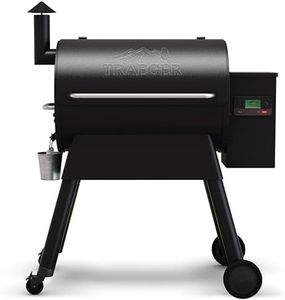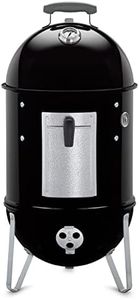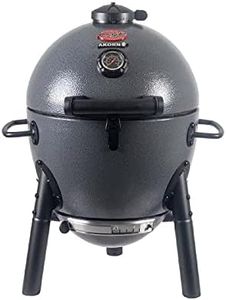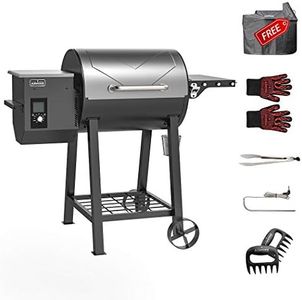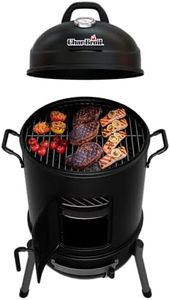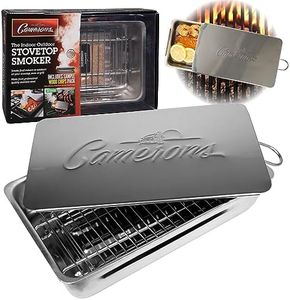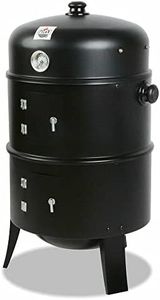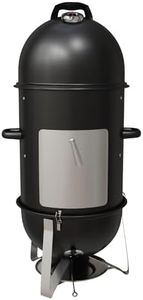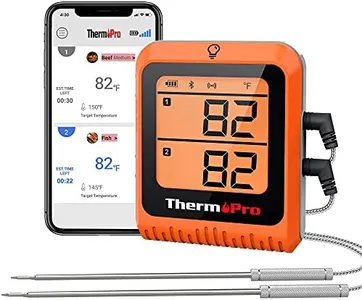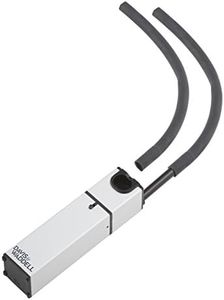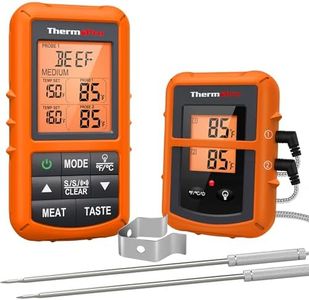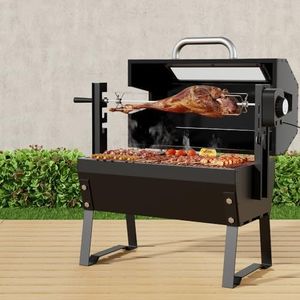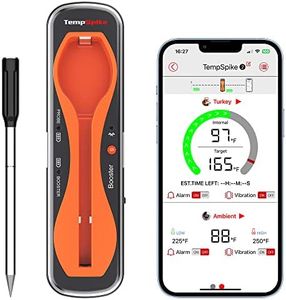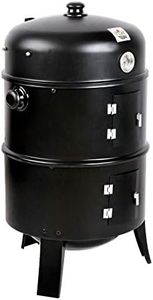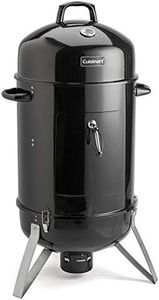We Use CookiesWe use cookies to enhance the security, performance,
functionality and for analytical and promotional activities. By continuing to browse this site you
are agreeing to our privacy policy
10 Best Meat Smokers
From leading brands and best sellers available on the web.By clicking on a link to a third party's website, log data is shared with that third party.
Buying Guide for the Best Meat Smokers
Choosing the right meat smoker can make a big difference in your barbecue experience, making it easier and more enjoyable to cook smoky and tender meats at home. When selecting a meat smoker, it's important to think about how much food you typically want to prepare, how involved you want to be in the cooking process, and what kind of flavor you want from your smoked foods. Understanding the main features and how they fit your cooking style will help you pick the smoker that best suits your needs.Type of SmokerThe type of smoker refers to the main fuel or mechanism the smoker uses, such as electric, charcoal, pellet, or propane. This is important because each type offers a different cooking experience and produces distinctive flavor profiles. Charcoal and wood smokers are great for traditional smoky flavors but need more attention and skill. Electric and propane smokers are easier to use, maintain steady temperatures, and are ideal for those who want convenience. Pellet smokers offer good flavor and automated features, blending both convenience and taste. To pick the right one for you, consider how much hands-on control you want and how important authentic smoke flavor is to your cooking.
Cooking CapacityCooking capacity is the amount of food you can smoke at one time, usually measured in square inches of cooking area or in the number of racks. A larger capacity is useful if you plan to cook for groups or large events, while a smaller smoker is easier to store and heats up faster, making it better for families or individuals. Estimate how many people you typically cook for and match the smoker size accordingly.
Temperature ControlTemperature control describes how easily and accurately you can set and maintain the heat inside the smoker. Some models have precise controls and built-in thermometers, while others require manual adjustment and watching. Consistent temperature is important for even cooking and food safety. If you want a 'set it and forget it' approach, look for smokers with digital or dial controls. If you enjoy monitoring and adjusting the cooking process, manual controls may suit you better.
Ease of CleaningEase of cleaning refers to how simple it is to clean the smoker after use. Grease and residue can build up, causing unwanted flavors and even fire risks. Some smokers have removable trays, accessible ash pans, and easy-to-wash racks. If you prefer quick and straightforward cleaning, look for these features to save yourself time and effort.
PortabilityPortability is about how easy it is to move the smoker, which depends on its weight, shape, and the presence of wheels or handles. If you want to use your smoker in different locations, or store it away when not in use, a lighter or wheeled model will be easier to handle. For permanent outdoor setups, a larger, heavier smoker may not be a problem.
Material and Build QualityMaterial and build quality refer to the thickness and type of metal used, as well as the overall construction. Heavier, insulated metals hold heat better and last longer, while thinner materials may heat up and cool down quickly but can be less durable. If you plan to smoke foods regularly or want your smoker to withstand outdoor weather, choose a well-built model with quality materials.
